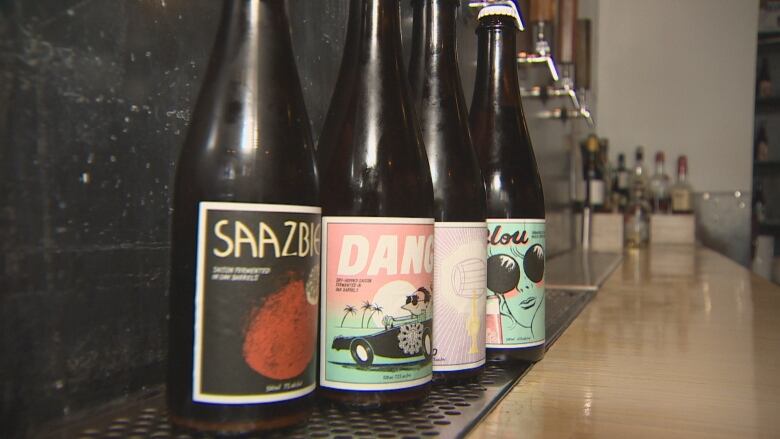Provincial 'fiefdoms' left in charge of liquor after court ruling, Stillwell owner says
Chris Reynolds says Supreme Court decision in Gerard Comeau case leaves too much taxation power with provinces

The co-owner of a downtown Halifax bar and brewery is looking fora silver lining in a Supreme Court of Canada ruling Thursday that reaffirmed the right of provinces to control inter-provincialliquor sales.
Chris Reynolds of Stillwellisn't surprised the Supreme Court justices sided with the provinces.
"The Supreme Court simply does not want to tell the provinces what to do," he told the CBC'sMaritime Noon."You could tell by listening to the proceedings back in December that this was kind of their mood on the subject."
Reynoldswas hoping for the end to provincial liquor monopoliesin Canada. That won't happen, but he is glad people are talking about the issue.

"Your average beer and wine or spirit consumer doesn't really care so much about this. You know, they go to their local [liquor store], they're happy with what the province has decided to sell them, and they buy it and go home."
He saidit's different for those in the industry who try to import or export brands from across the country and are beholden to provincial authorities, which he described as"fiefdoms that have way too much control, way too much taxation at their disposal."
TheSupreme Court of Canada ruling involvedNew BrunswickerGerard Comeau.Comeauwas stopped for having importedtoo much alcohol from Quebec five years ago.
Potential end of liquor monopolies
Reynolds said ending liquor monopolies would be beneficial to businesses like his. The owners of Stillwell have a sister bar in Ontario but because of trade barriers Reynolds said it doesn't make sense tosell the company'sHalifax-made beer there.
"As it stands now, the [Liquor Control Board of Ontario]has a stranglehold. They've only issued ...licences for people to import kegs into that province and it's just not practical for us to do that right now," he said.
Stillwellsellsbeer from across the world, but Reynolds said it comes with a hefty price tag. He said Canada's Importation of Intoxicating Liquors Act means Nova Scotia owns all the alcohol within its borders and that costs the craft beer industry a lot of money.
"They basically tell us when to wake up in the morning, when to go to bed and they put taxes on imported things that are in the 100 per cent range. They do that and all of the other provinces do that as well. It's a huge money-maker for the provinces," Reynolds said.
'Incredible level of taxation'
When it comes to bringing in craft beer from other provinces, Reynolds said he has to do it through the Nova Scotia Liquor Corporation (NSLC).
"In the case of bottles, sometimes the NSLC or provincial government will earn more on that transaction than the family that brewed it or mine that sells it here," said Reynolds. "It's an incredible level of taxation and control that they have over all of the alcohol in the world."
Ending trade barriers would be helpful to businessowners, Reynolds said.
"It would help us immensely, just from the practical point of being able to ship something from point A to point B without having to go through a bureaucracy. But also just financially. We all pay crazy amounts of tax on anything that moves through provincial borders right now," he said.
With files from Tom Murphy












_(720p).jpg)


 OFFICIAL HD MUSIC VIDEO.jpg)
.jpg)



























































































